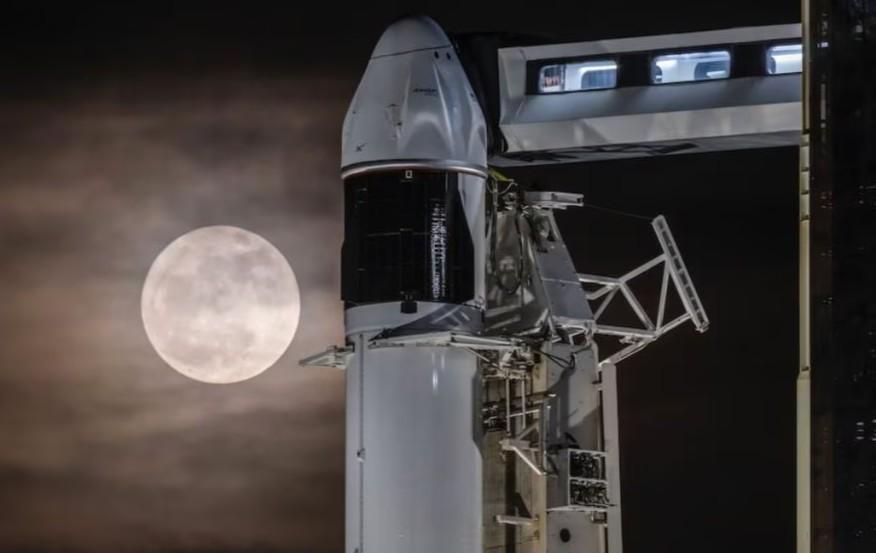
Pichai, Musk & Bezos competing to establish data centres on Moon: Report
In a surprising turn of events, three of the world’s most influential tech moguls, Sundar Pichai, Elon Musk, and Jeff Bezos, are reportedly exploring the possibility of establishing data centres on the Moon. According to a Wall Street Journal report, the trio is eyeing the lunar surface as a potential location for storing and processing vast amounts of data. This ambitious plan is driven by the Moon’s unique environment, which offers a stable and low-temperature setting, ideal for reducing cooling costs for servers.
The idea of setting up data centres on the Moon may seem like the stuff of science fiction, but it’s an opportunity that these tech giants are taking seriously. The Moon’s surface provides a vast, open space that can accommodate massive facilities without the environmental concerns that come with building on Earth. The report highlights that certain regions on the Moon have extremely low temperatures, which would significantly reduce the need for cooling systems, a major expense for data centres.
Sundar Pichai, the CEO of Google and Alphabet, has been at the forefront of innovation, driving the company’s efforts in artificial intelligence, cloud computing, and more. Elon Musk, the visionary founder of SpaceX and Tesla, has been pushing the boundaries of space exploration and renewable energy. Jeff Bezos, the founder of Amazon, has been investing heavily in space technology through his company Blue Origin. The fact that these three leaders are now competing to establish data centres on the Moon is a testament to the growing importance of space-based technologies.
The concept of lunar data centres is not entirely new. Scientists have long suggested that the Moon could serve as a hub for astronomical research, given its proximity to Earth and lack of atmospheric interference. However, the idea of using the Moon as a data storage facility is a more recent development. With the increasing demand for cloud computing and data storage, tech companies are looking for innovative solutions to reduce costs and increase efficiency.
The Moon’s surface offers several advantages for data centre operations. For one, the lunar regolith (soil) can provide natural insulation, reducing the need for cooling systems. Additionally, the Moon’s gravity is only one-sixth of Earth’s, which could lead to significant energy savings. The report also mentions that the Moon’s lack of atmosphere means that there would be no risk of natural disasters, such as earthquakes or hurricanes, which can damage data centres on Earth.
However, establishing data centres on the Moon is not without its challenges. One of the primary concerns is the lack of infrastructure, including reliable transportation systems and energy sources. The Moon’s surface is also exposed to harmful radiation from the Sun, which could pose a risk to both humans and electronic equipment. Furthermore, the distance between the Moon and Earth would require advanced communication systems to facilitate data transfer.
Despite these challenges, the potential benefits of lunar data centres are significant. By reducing cooling costs and increasing energy efficiency, these facilities could provide a more sustainable solution for data storage and processing. Moreover, the Moon’s proximity to Earth would allow for faster data transfer rates, making it an attractive option for applications that require low latency, such as real-time analytics and artificial intelligence.
The competition between Pichai, Musk, and Bezos to establish data centres on the Moon is likely to drive innovation and investment in space-based technologies. As these tech giants push the boundaries of what is possible, they may also pave the way for new opportunities in space exploration, scientific research, and commercial development.
In conclusion, the report of Sundar Pichai, Elon Musk, and Jeff Bezos competing to establish data centres on the Moon is a significant development in the tech industry. The Moon’s unique environment offers a stable and low-temperature setting, ideal for reducing cooling costs for servers. While there are challenges to overcome, the potential benefits of lunar data centres are substantial, and the competition between these tech giants is likely to drive innovation and investment in space-based technologies.






